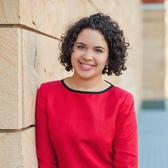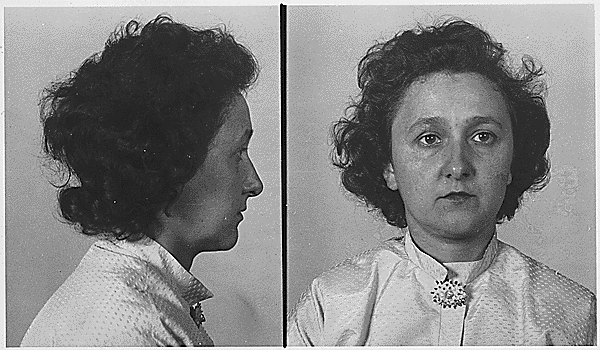“On Conspiracies and Conspirators”: How Adrienne Rich’s Poem Resonates Today
Cold War culture reverberates all around us: paranoia about information and disinformation, the leaking and stealing of state secrets, the Russian threat, political polarization, and a haunting specter of communism (or “radical socialism,” thrown around without much care for accuracy). The more people call our moment “unprecedented,” the more furiously we search for precedents. Where should we look? To the 1918 Influenza epidemic? To the Civil Rights demonstrations of a half century ago to understand this year’s wave of Black Lives Matter protests? With the deaths of such towering moral figures like John Lewis and Ruth Bader Ginsburg, Americans are struggling to find a usable past, even a voice from the past to help decipher the present.
But this is nothing new. The Posen Library of Jewish Culture and Civilization allows a deep dive into many possible usable Jewish pasts. Consider Adrienne Rich’s 1981 poem “For Ethel Rosenberg,” originally published in The Iowa Review. The work is dedicated to the Jewish woman who, along with her husband, was executed for “conspiracy to commit espionage” in 1953. Why write about a co-conspirator in 1981?
The Rosenbergs’ trial and their eventual execution epitomized the Red Scare during the Cold War. Although it’s now recognized that there was little to no evidence supporting Ethel Rosenberg’s involvement, she was accused along with her husband, Julius, of passing atomic secrets to the Soviets. The press painted Ethel Rosenberg as coldhearted, a bad mother, a woman who put her political convictions over her familial affections. Indeed, the fact that her own brother turned her in, and that other members of her family testified against her, shaded in this negative portrait further. Under the cloud of McCarthyism, suspicion of those involved in the Communist party ran high—and had dangerous consequences. Moreover, Jewishness became intimately tied to an affinity for communism (which she had shown in the past), and HUAC/blacklists often targeted Jews. Within this context of paranoia, hardly any Jewish communal organizations came to the Rosenbergs’ defense. The American Jewish Committee went so far as to endorse the guilty verdict against them and failed to criticize the death penalty.
Ideas of family and Jewish disloyalty loom large in Rich’s poem dedicated to Ethel Rosenberg. For Rich, one of the country’s most prominent lesbian and Jewish poets, doubts circulating around Ethel Rosenberg’s case could appear to be the anxieties of her own life: not only the “Jewish question,” but also questions of loyalty, of family, of artistic or political aspirations for women. Rich even draws a parallel between Rosenberg’s story of conspiracy and her own personal timeline: The execution occurred just a week before she was married, in the summer of 1953. She writes that Rosenberg was charged,
not with selling secrets to the Communists
but with wanting to distinguish
herself being a bad daughter a bad mother
And I walking to my wedding
by the same token a bad daughter a bad sister
For Rich, being a good and loyal daughter meant marrying a man—and not being an artist, not being political, not being... distinguished.
In this poem, Rich forges a link between herself and another iconic Jewish woman of the Cold War era. Now, some forty years later, her poem can help us think about our own moment—and our tendency to look back to the past, or to imagine a present with our past heroes to guide us.
In some ways, “For Ethel Rosenberg” is an elegy. Rich writes ruefully about how Rosenberg has become an icon—she is “natural prey for pornographers,” one half of “that dead couple / on the front pages of the world.” Rich suggests that Rosenberg has become part of her, almost a personal idol, “her figure sinks into my soul / a drowned statue.” This affinity for the woman she never knew grows as she imagines what might have happened had she lived. Would Rosenberg have taken part in “Take Back The Night” demonstrations or other feminist causes? How might the two women have aligned if they had both gotten to live through the intervening decades since the respective changing and ending of their life courses.
But by the end of the poem, Rich acknowledges that she doesn’t really know what Rosenberg believed. She realizes that she must allow the counterfactual Rosenberg to have different ways of “being political,” different “urgencies,” even a different definition of the word “revolution.” If Rosenberg were alive in 1981, she might be, “bored to the marrow of her bones / with ‘politics’ / bored with the vast boredom of long pain.” Rich doesn’t necessarily let go of Rosenberg, but instead gives Rosenberg her own historical and political personhood.
So, what is there to say about looking back—or even looking at other people looking to the past? The poem teaches us that figures from the past are as imperfect and historically specific as we are (that includes Rich, as well). We, too should define “being political,” “urgency,” and even “revolution,” for ourselves, in response to our present moment.
This article was written in partnership with The Posen Library.










Is it possible that Ethel Rosenberg was used as an example because she was Jewish ?
When I read anything about the Rosenberg, it saddens me. Was anything actually proven?